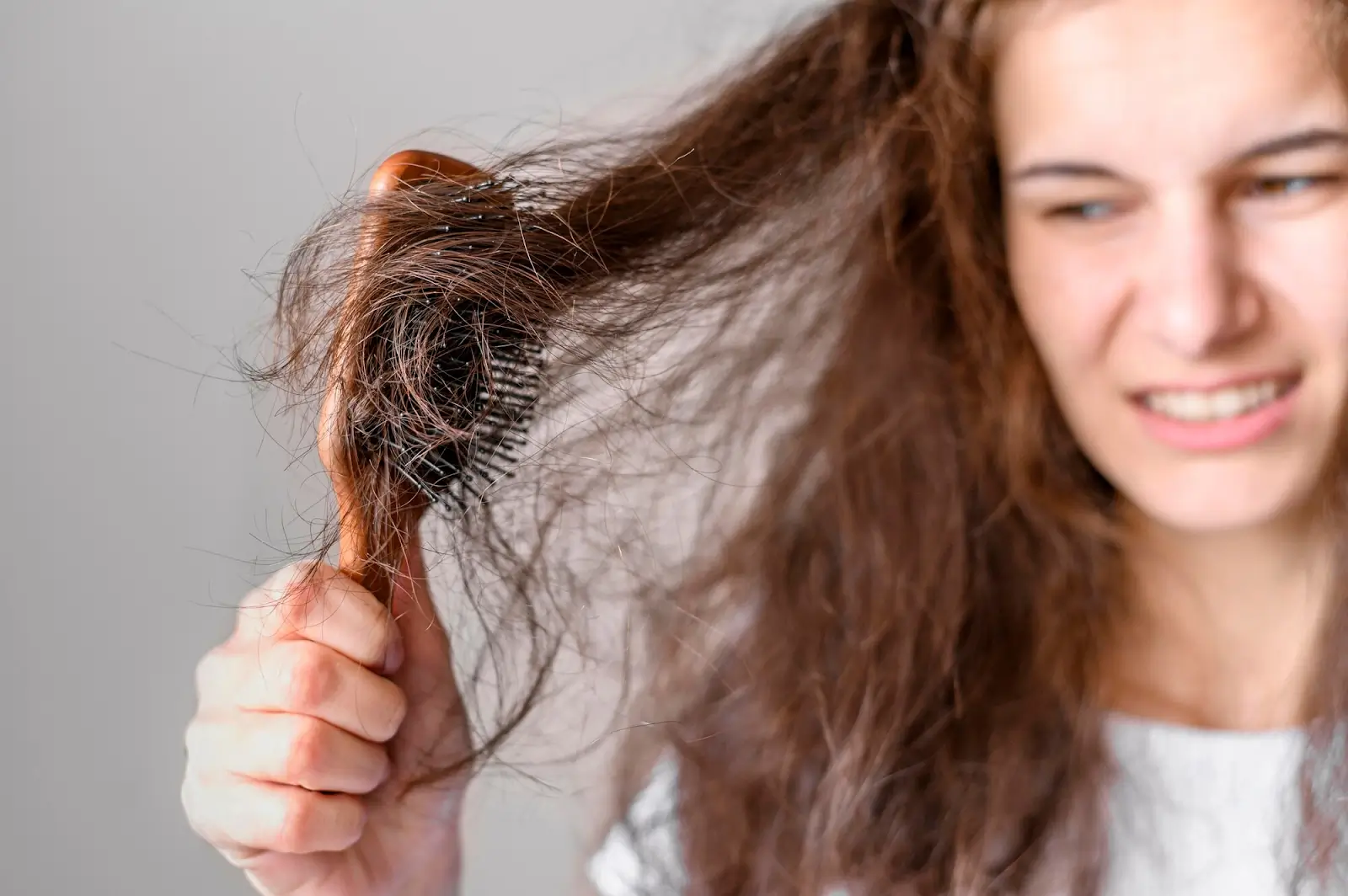
A recent study noted that biologic medications like denosumab (Prolia) are generally well-tolerated, with most side effects being mild to moderate. However, some patients have reported issues ranging from musculoskeletal discomfort to rare skin reactions. While hair loss is not typically listed among Prolia’s common side effects, growing anecdotal reports have prompted questions about its possible connection.
Prolia, an injectable therapy used to treat osteoporosis, works by inhibiting bone resorption through RANKL suppression. As its use continues to expand, especially among older adults, understanding its complete safety profile, including less frequent symptoms, has become increasingly important. For many patients, even a potential link to hair loss can be a source of anxiety.
In this article, we’ll examine whether Prolia can cause hair loss, review current research and clinical literature, explore patient-reported experiences, and provide expert commentary on what is—and isn’t—known.
Key Takeaways
- Hair loss is not an officially listed side effect of Prolia (denosumab), but anecdotal reports from patients have raised concerns about potential hair thinning during treatment.
- Informal reviews and post-marketing reports occasionally mention hair changes, usually after multiple injections, though these cases are rare and often reversible.
- Proposed mechanisms linking Prolia to hair loss include RANKL inhibition affecting hair follicle cycles, calcium imbalances, and immune-related shedding, such as telogen effluvium.
- Clinical trials like the FREEDOM study have not identified hair loss as a common adverse event, and pharmacovigilance databases show a very low incidence compared to other known side effects.
- If hair loss occurs, clinicians should rule out other common causes (e.g., thyroid issues, nutrition, stress), monitor progression, and consider dermatology referral if needed.
- Most cases of hair thinning resolve on their own, and continued Prolia treatment is generally safe unless other significant side effects are present.
- Patient reassurance, education, and nutritional support can help manage expectations and maintain treatment adherence.
About: Doctor Medica is your trusted supplier of top-quality dermal fillers, viscosupplements, and more for your medical practice. We offer genuine products from leading brands at the lowest prices. Contact Doctor Medica today to order Prolia online for your practice.
Investigating Hair Loss Reports in Prolia Users

While not officially listed as a side effect, reports of hair loss among Prolia users have occasionally emerged in patient forums and post-marketing surveillance databases. These reports are relatively rare, but they are noteworthy given the emotional and physical impact hair loss can have, especially in long-term treatments.
In many of these anecdotal cases, hair thinning or increased shedding became noticeable after the second or third Prolia injection. Although causality is hard to determine, several consistent themes appear across patient narratives:
- The timing of hair changes often aligns with ongoing Prolia administration.
- Not all patients experience hair loss; for some, symptoms appear reversible after a few months.
- Hair loss is not listed in clinical trial data but is acknowledged in informal Prolia reviews and feedback threads.
- Continued monitoring of patient experiences helps clinicians detect and respond to emerging safety concerns more effectively.
For now, patient-reported cases provide a basis for awareness, even in the absence of a confirmed scientific link.
Potential Mechanisms Linking Prolia to Hair Loss
Though no proven biological pathway directly connects Prolia to hair loss, researchers and clinicians are considering several theoretical mechanisms. These are based on Prolia’s mechanism of action and how it might indirectly influence hair follicle behavior:
- Altered Bone Signaling: Prolia inhibits RANKL, a molecule involved in bone turnover but also expressed in skin. Suppressing RANKL may affect hair follicle cycling or keratinocyte behavior.
- Mineral Imbalances: Prolia can induce hypocalcemia, especially in patients with renal issues or low baseline calcium levels. This may interfere with hair follicle metabolism or growth cycles.
- Systemic Inflammatory Effects: Subtle immune modulation may trigger telogen effluvium, a condition where hair follicles prematurely enter the shedding phase. This is typically temporary and resolves with time.
While speculative, these ideas highlight the complex interplay between immune, hormonal, and dermatologic systems, which may be sensitive to even small biologic shifts.
Clinical Evidence and Case Studies

To date, formal clinical trials have not established a definitive link between Prolia and hair loss. However, a growing number of case reports and pharmacovigilance entries indicate that some users may experience changes in hair volume or quality. Here’s a summary of available data:
| Source | Findings |
| Case Reports | Isolated cases describe mild to moderate hair loss during Prolia treatment. |
| Clinical Trials (e.g., FREEDOM Trial) | Hair loss was not listed among common adverse events. |
| Pharmacovigilance Databases | Occasional reports of hair disorders are far less common than other issues. |
While hair loss remains an uncommon and unconfirmed reaction, clinicians should keep an open mind and document any patient-reported changes in hair health during treatment.
Managing Hair Loss in Patients on Prolia
When patients on Prolia express concerns about hair thinning, it’s important to approach the situation with empathy, clinical logic, and supportive strategies. Hair changes can be distressing and may affect treatment adherence if not acknowledged.
Recommended steps include:
- Rule Out Other Causes: Common triggers include thyroid dysfunction, iron deficiency, stress, recent illness, or medications unrelated to osteoporosis.
- Monitor Progression: Keep track of whether the hair loss stabilizes, improves, or worsens with time. Encourage the use of photos or hair logs.
- Nutritional Support: Ensure the patient is receiving adequate calcium, vitamin D, and protein, which are essential not just for bone health but also for hair structure.
- Refer to Dermatology: In cases of persistent or unexplained hair loss, a dermatology referral can help rule out underlying conditions and offer targeted therapies.
Most patients do not need to stop Prolia unless other serious side effects arise. With reassurance and appropriate support, many continue treatment without long-term issues.
Conclusion
Based on available evidence, hair loss is not a commonly reported or officially recognized side effect of Prolia (denosumab). However, patient-reported experiences suggest that some individuals may experience mild, temporary hair thinning, which warrants further study.
As post-marketing surveillance and patient feedback continue to evolve, healthcare providers should stay informed and take all concerns seriously. By validating patient experiences and monitoring symptoms closely, clinicians can maintain trust and improve long-term outcomes—even when the science is still catching up.
For now, the association between Prolia and hair loss remains anecdotal, but not dismissed. Open dialogue between providers and patients is key.
FAQs
1. Is hair loss a known side effect of Prolia?
No, hair loss is not listed as an official side effect. However, a few patients have reported it anecdotally.
2. How can I tell if my hair loss is related to Prolia?
Consult your healthcare provider to rule out other causes like stress, nutrition issues, or unrelated health conditions.
3. Will hair grow back after stopping Prolia?
In most reported cases, hair regrowth occurred after Prolia treatment was paused or discontinued, but results can vary individually.
4. What are the most common side effects of Prolia?
Common side effects include back pain, joint pain, muscle pain, injection site reactions, and upper respiratory symptoms like a runny nose or sore throat.
5. Are there serious side effects I should watch for?
Yes. Serious but rare side effects include osteonecrosis of the jaw (ONJ), atypical femur fractures, hypocalcemia (low calcium levels), serious infections, and severe allergic reactions. Contact your doctor immediately if you experience symptoms like jaw pain, thigh or groin pain, severe muscle or joint pain, or signs of infection.
6. How often is Prolia administered?
Prolia is given as a subcutaneous injection every six months by a healthcare professional.
7. Do I need to take supplements while on Prolia?
Yes. Calcium and vitamin D supplementation are recommended to reduce the risk of hypocalcemia and support bone health.
8. Can Prolia be used if I have kidney problems?
Prolia is generally preferred over bisphosphonates in patients with kidney impairment, but monitoring for hypocalcemia is essential.
References
Lewiecki EM. New and emerging concepts in the use of denosumab for the treatment of osteoporosis. Ther Adv Musculoskelet Dis. 2018;10(11):209-223. https://journals.sagepub.com/doi/pdf/10.1177/1759720X18805759
Lyakhovitsky A, Oshinsky S, Gilboa S, Barzilai A. Alopecia areata after denosumab treatment for osteoporosis. JAAD Case Rep. 2016;2(4):298-300. Published 2016 Aug 1. doi:10.1016/j.jdcr.2016.06.003
Weiser P. Prolia side effects: What you should know. Updated January 9, 2023. https://www.medicalnewstoday.com/articles/drugs-prolia-side-effects
Related Articles
Joanna Carr
Can You Put EMLA Cream on a Burn?
Learn whether EMLA cream is safe for use on burns, including key safety considerations, effectiveness, and expert recommendations for pain management ...
Joanna Carr
Crespine Gel Injection Side Effects
Learn about Crespine Gel injection side effects—explore potential risks, common reactions, and safety precautions to ensure effective and worry-free t...
Joanna Carr
Durolane Dosage and Prescribing Information
Explore Durolane dosage guidelines and prescribing details. Learn how this hyaluronic acid injection is used for effective osteoarthritis pain managem...


